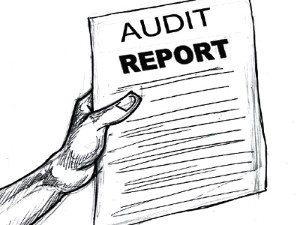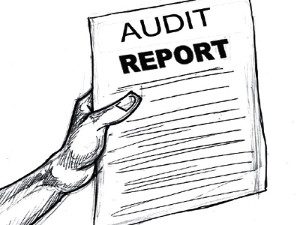CBDT proposes new audit report Form 10B for charitable trusts & institutions

The proposed new Form 10B appears to have been designed for the tax department to seek more details from charitable trusts or institutions and make the task of auditors as also their clients (charitable institutions) onerous. One may as well do away with the Return in Form ITR 7 and make this proposed new Form 10B a Return cum Audit Report!

Report or Return?
Charitable trust/institution whether registered as a public charitable trust or a society under the Act of 1860 or as a company licensed under section 8 of the Indian Companies Act is required to file along with the Return of income in ITR-7, Audit Report in Form 10B.
We are all aware about the huge data mining exercise which the government of India initiated a few years ago and still persists. Last year ITR 7 was changed shifting the entire onus on the taxpayers to prove their claim for deductions, expenses or exemptions. This year, Form 10B is sought to be amended to make statutory auditors virtually certify the disclosures already made in ITR-7. It would not be an exaggeration to state that the proposed new Form 10B is a condensed Income Tax Return in the name of Audit Report.
CBDT’s Notification
On 21st May 2019 Central Board of Direct Taxes (CBDT) released a draft notification for amending Rule 17B related to audit rules for trusts or institutions. This is the first time in over 45 years that the audit report for trusts and institutions is proposed to be amended and according to CBDT since this was notified way back in 1973, there is “a need to rationalize” and “align with the requirements of the present times”.
The draft notification, which has been put in public domain for comments till 5th June 2019, includes a new eight page Form 10B as against the existing three page form, seeking details like foreign donation received and details of donors to whom certificates are issued for claiming deduction under Income Tax, statute under which trust/institution is constituted, registration under Income-tax Act, object/s of trust/institution, details of income and application of income, registration status under Foreign Contribution (Regulation) Act, (FCRA), 2010 and method of accounting policy along with a host of other details.
What has changed?
The revised audit form 10B ushers a radical shift in the manner in which the tax and regulatory authorities of ‘Digital India’ will now look at statutory compliances.
There are several significant changes where auditor has to certify loan/s taken or given by the organisation, Non-Deduction of TDS, Late filling of TDS returns, penalties paid (if any), depreciation details, Investments made by the organisation etc.
The revised ‘Statement of particulars’ seeks extensive details of the operations of the Trust, to ensure whether the trust is fully compliant with the applicable processes and procedures.
Instead of taking a cue from how the Ministry of Corporate Affairs deals with ‘shell companies’, CBDT has now thrown the onus on auditors to verify contact details like address, email, phone number, fax number, mobile number of the trust or institution.
In short, requirement of additional disclosures will increase responsibility of auditors as they would now be required to certify that the particulars given are factual and accurate. In other words, the ‘Audit Report’ will virtually turn into an ‘Audit Certificate’.
What is asked?
Objects & business income
Auditors will be required to certify the ‘objects’ and the category/class of ‘charitable purpose’. This could lead to potential difference of opinion between the trust which may think it is established for ‘charitable purpose’ under the category ‘education’ whereas the auditor may think that the objects and activities fit more appropriately under the category, “any other object of general public utility”.
In case of trust/institution with object classified as ‘advancement of any other object of general public utility’, the draft notification seeks details as to whether such activity is in the nature of trade, commerce, business or services in relation thereto for cess, fees etc., details of receipt from such activity.
If the activities fall under the category ‘advancement of any other object of general public utility’, the auditors will now also have to evaluate, whether the same are undertaken in course of such advancement; whether such activities involve carrying of the business or commercial activities; and if Yes, income from such business / commercial activities? This virtually makes the auditor a quasi assessment officer for indeed it is for the assessing officer or appellate authority to determine this and not the auditor.
Auditor will be required to certify details of the receipts from business or professional activities of the organisation. Thus all income received by the organisation by way of providing goods or service will have to be reported by the Auditor.
Where business undertaking is held as ‘property held under trust’, the proposed form requires extensive details and also filing of audit report in Form 3CA/3CB as applicable.
Donations
Auditors will be required to report in-kind donations. But, how is an auditor who audits accounts once a year to know if new or used lap-top computer/s, printer/s, phone/s etc., is donated to the trust or institution and the same is recorded accurately or not?
Auditors will also be required to comment on anonymous donations u/s 115BBC. This means they will have to verify identity and address of each and every donor available with the charity client in order to comment on this. Imagine the task before the auditor if a charity receives small donations between Rs. 300/- to Rs. 500/- aggregating Rs. 100,000/-
Till now, there was no mechanism in Income Tax to cross verify Donation receipts issued u/s. 80G by NGO and exemptions claimed by Individual Tax Payer for 80G. Here in this new form, Auditor has to certify total donation receipts issued by organization u/s 80G and it is mandatory now to take PAN of the donor.
Also, if PAN is not available from the donor, it will be deemed anonymous donation. This also needs to be report and certify by the Auditor in a specific format. Thus to eliminate anonymous donation, even a small sums of donation must now be backed by PAN and donor details.
Foreign contributions
The proposed new form also requires the auditor to provide details regarding Foreign Contribution received by the trust/institution with Name, Address and Country Code of Foreign Donor. This disclosure is made under ITR 7 and yet repeated in this proposed new Form 10B.
Verifying “interested persons”
Auditor will also be required to certify persons covered u/s 13(3) of the Income Tax Act which means “relative of the author, founder, member, trustee or manager of the trust”. The term relative is defined under Explanation 1 to section 13 of the Income tax Act 1961.
Auditor will be required to certify any concern in which any of the person u/s 13(3)( a) to (d) has a substantial interest. This means the trust/institution must now obtain specific disclosure from each of these persons and submit them with the auditor. It is not clear whether the auditor can simply rely and report based on these disclosures or check the authenticity of these disclosures.
Details of PAN and Aadhar Number of all such persons must also to be reported.
TDS
Auditor must certify items of expenditure on which TDS is applied or paid.
Auditor must also certify cash payment in excess of Rs. 10,000 paid to any one person in a day.
Organisations will now have to prepare complete reconciliation of TDS under each of the applicable section of Chapter XVII-B of the I-T Act for the auditor’s verification which includes all expense line items (salaries, professional fees, payment to contractors, rent, interest etc.) debited to Income & Expenditure statement.
Similarly, auditors have to report all filings of TDS and TCS return and interest payable on non-deduction/ late payment of TDS.
Acceptance of loans and advances and their repayment otherwise than through cheque / electronic mode has also been included for reporting by auditor.
CBDT’s Notification & the proposed new Form 10B can be seen/downloaded at: https://www.incometaxindia.gov.in/news/amendment_10b_draft_notification_misccomm_21_5_19.pdf
Stakeholders and general public should provide inputs electronically to: niraj.kumar82@nic.in latest by June 5, 2019.